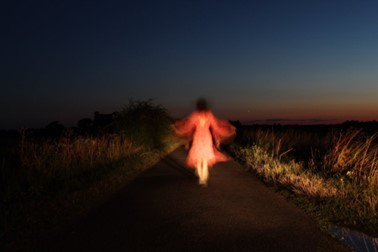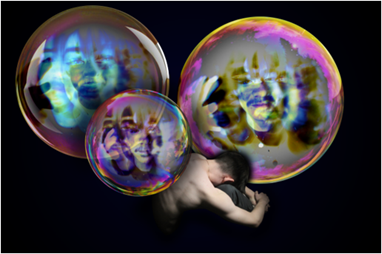Photography
Subject Vision
Our Photography Department fosters critical thinking and visual literacy within a supportive, creative environment. Students gain knowledge and independence through tailored projects, where risk-taking is encouraged and both independence and teamwork are vital. As they progress, students refine technical skills and develop their understanding of the contextual aspects of visual language, whilst exploring a variety of media. Curiosity and independent thinking are strongly emphasised, promoting a fearless approach to new ideas and challenges.
Key Stage 5 Curriculum Overview
|
|
Year 12- Photography |
Year 13- Photography |
|
Aut.1 |
An Introduction to Photography Part 1 – Learning camera skills and settings, digital editing and contextual understanding. |
Component 1- Practical, research, and analysis. |
|
Aut.2 |
An Introduction to Photography Part 2 - Further development of Photographic Understanding including lighting techniques, studio work and exploring the work of key practitioners. |
Component 1- Final practical outcomes and written element completed. |
|
Spr.1 |
Alternative Photographic Techniques Part 1 - Exploring a range of analogue and digital manipulation techniques including darkroom work. |
Component 2- ESA |
|
Spr.2 |
Alternative Photographic Techniques 2 – Applying learnt techniques to personal work and following a brief. |
Component 2- ESA |
|
Sum.1 |
Component 1- Personal Investigation. An Introduction to Component 1. Discussion of ideas, and initial planning and experimentation. |
ESA and final exhibition |
|
Sum.2 |
Component 1- Personal Investigation. Completion of experimentation. Idea/theme confirmed, and initial work underway. Yr12 PPE outcome. |
|
Entry Requirements
A grade 5 GCSE Art and Design or similar creative GCSE such as Textiles or Graphics.
Overview
We follow the Eduqas A level syllabus in Photography which has been designed to provide engaging and innovative learning experiences, where creative practice is meaningfully integrated with theoretical knowledge and understanding. The course is divided into two components. Component 1 is the coursework element and accounts for 60% of the overall grade. The ESA (Component 2 - externally set assignment) is the exam element and accounts for the remaining 40% of the overall grade. The specification encourages creativity, sustained investigation and analysis, experimentation, and design and making as a means of developing technical and expressive skills. We aim to provide our students with the opportunity to follow a programme of study which extends experience and personal response as well as developing imagination and critical and reflective thinking. The ability to innovate, adapt and work independently, which underlies all aspects of the specification, is valued by higher education and employers alike. Key skills we aim to enable students to develop include:
· investigative, analytical, experimental, practical, technical and expressive skills, aesthetic understanding and critical judgement
· independence of mind in developing, refining and communicating their own ideas, their own intentions and their own personal outcomes
· an interest in, enthusiasm for, and enjoyment of photography and the wider creative field
· the experience of working with a broad range of photographic equipment, materials and techniques
· an understanding of the interrelationship between photography and creative processes and an awareness of the contexts in which they operate
· knowledge and experience of real-world contexts and, where appropriate, links to the creative industries
· knowledge and understanding of photography and lens-based media in contemporary and past societies and cultures
· an awareness of different roles, functions, audiences and consumers of photography and lens-based media.
Where does this subject lead me?
Studying Photography at A level will enable you to develop technical skills such as how to use photographic equipment professionally, digitally manipulate images and understand lighting technique. You will also develop critical thinking skills through the analysis of visual imagery and its context within society, and the skill of creative expression which will enable you to visually communicate ideas. Post A-Level, these skills can be applied to many visual communication areas. Those students who wish to continue with their studies can choose from a wide range of creative fields including Photography (such as Fashion, Documentary, Advertising, Sport and Travel) Fine Art, Graphic Design, Illustration, 3D design, Marketing, Media Studies, Film Studies, Web Design, and Communication Studies.
Careers Information
Students who study Photography can go on to become commercial and fine art photographers, work in advertising, art direction, film and television, graphic design, web design, multimedia, museum and gallery curation, art therapy, community arts, digital marketing and project management.
Other Information
Reading Opportunities
On Photography Susan Sontag (1977) If you are going to read one book on Photography, make it this one. It is a classic that anyone seriously interested in Photography will have read.
Camera Lucida Roland Barthes (1980) Another classic in the world of the critical and contextual understanding of photography. Quite deep but a worthy read.
The Nature of Photographs Stephen Shore (1998) Shore writes this from the position of a practising photographer, and it is presented in easy-to-read sections.
Photography Changes Everything Marvin Heiferman (2012) An excellent book for considering the impact photography has on us as a society.
How to Read a Photograph Ian Jeffrey & Max Kosloff (2019) Probably the easiest of the suggested reads as it is broken down into specific photographs, so you can select an image you are inspired by and read the relevant text.
Websites
https://thephotographersgallery.org.uk/photography-culture The Photographers Gallery has a bank of articles, interviews and discussions on the changing face of Photography. The articles are easy to access, informative and contemporary.
https://www.lensculture.com/ LensCulture is a brilliant website that showcases the best of contemporary photography from around the world. You can view projects from a wide selection of photographers, read or hear interviews and access articles. It is great for finding inspiring photographers and ideas, and also improving your critical and contextual understanding of photography.
https://www.vam.ac.uk/collections/photographs The V&A Museum has an excellent Photography section on its website. You can view work from their collection, read articles and learn about photographers.
https://rps.org/ You do not have to be a member to be able to access most of the information on the website of the Royal Photographic Society. It is a good starting point for finding ideas for shoots, projects and themes, and viewing contemporary photography.
https://photographylife.com/learn-photography Excellent, easy to read tutorials on all aspects of practical photography.


